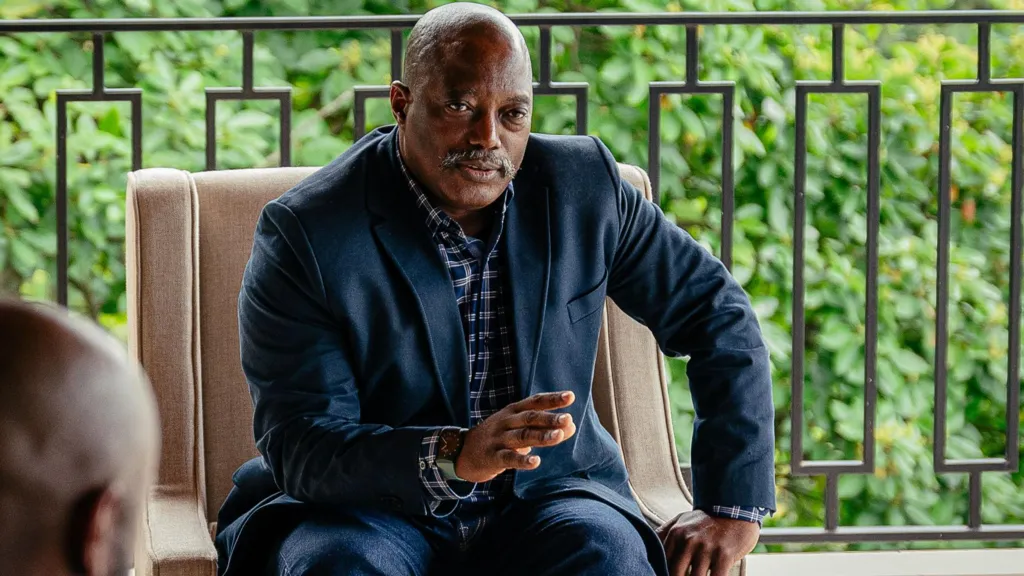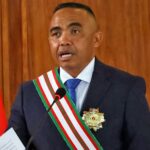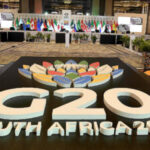Former Democratic Republic of Congo (DRC) President Joseph Kabila has resurfaced in Nairobi, Kenya, announcing the formation of a new political movement aimed at “saving” his country from what he described as the growing dictatorship of President Félix Tshisekedi. The announcement followed a high-profile two-day meeting of Congolese opposition leaders and civil society figures, marking Kabila’s first public appearance in months since being sentenced to death by a military court in Kinshasa.
The gathering, held on Tuesday and Wednesday in Kenya’s capital, resolved to rally Congolese citizens across the world to unite against the current government, accusing it of poor governance, economic mismanagement, and systematic suppression of dissent. A 14-point declaration from the meeting—signed by 12 political and civil leaders—called for national resistance to what they termed “dictatorship, injustice, and corruption.” The statement urged Congolese at home and abroad to “take daily actions to save the DR Congo,” emphasizing that “every gesture matters and will count toward victory and dignity.”
Kabila’s dramatic return to the political stage comes amid escalating tensions in the DRC, where the government faces ongoing insurgencies, political instability, and accusations of authoritarianism. His reemergence has drawn sharp criticism from Kinshasa. Government spokesman Patrick Muyaya dismissed the Nairobi meeting as a “non-event” and branded it a gathering of “fugitives and convicts.” Kenya’s foreign ministry has yet to comment on the meeting or confirm whether it had any official involvement.
The former president, who ruled DR Congo from 2001 to 2019, was sentenced to death in absentia for war crimes and treason—charges he has rejected as politically motivated and “arbitrary.” Kabila did not appear in court to defend himself, and his location had been unknown since May, until photos of him in Nairobi circulated on social media earlier this week. His co-conspirator in the new movement, former Prime Minister Augustin Matata Ponyo, was also present at the Nairobi summit. Ponyo was himself sentenced to 10 years in prison earlier this year for alleged corruption, which he also denounced as a fabricated case designed to silence dissent.
Participants at the Nairobi meeting condemned what they described as the Tshisekedi government’s failure to initiate inclusive national dialogue, despite holding full control of state institutions. They accused the president of neglecting critical social and economic issues, such as poverty, insecurity, and unemployment, while using the judiciary to persecute political opponents. The declaration also denounced the “arbitrary detention of political leaders” and the “unjust rulings” of courts against opposition members and human rights activists.
Kabila and his allies further pledged to launch an international diplomatic campaign to raise awareness of what they claim is the deteriorating political and human rights situation in DR Congo. They aim to seek support from African and global partners to push for reform and accountability in Kinshasa.
The Congolese government, meanwhile, has expressed frustration at Kenya’s role as a perceived safe haven for exiled opposition leaders. Nairobi has previously hosted controversial figures linked to the M23 rebel movement, a militia that has seized parts of eastern Congo and fueled regional instability. In 2023, opposition leader Corneille Nangaa launched the Alliance Fleuve Congo (AFC) from Nairobi—a coalition that includes members of the opposition and the M23 rebels. The Congolese government accused these groups of undermining national sovereignty and destabilizing the east with the backing of foreign actors.
The tensions have deep historical roots. Kabila, who came to power after the assassination of his father, Laurent-Désiré Kabila, in 2001, ruled for nearly two decades before stepping down in 2019. Initially an ally of Félix Tshisekedi, Kabila supported him during the disputed election that year, but relations soon soured. By 2023, the former president had gone into self-imposed exile after losing his Senate immunity, which cleared the way for his prosecution. Tshisekedi’s administration has since accused Kabila of being the mastermind behind the M23 rebellion—a claim he has consistently denied.
Earlier this year, Kabila briefly returned to public attention when he declared his intention to help mediate the violence in eastern Congo. In April, he announced plans to promote peace efforts in the region and was later seen in Goma, an area under partial control of M23 rebels. His sudden disappearance after that visit fueled speculation about his safety and political plans—until now.
The timing of Kabila’s Nairobi reappearance is politically significant, coinciding with the Congolese government’s signing of a ceasefire monitoring agreement with the M23 in Doha. However, both sides have accused each other of breaching the terms of that deal, raising doubts about its viability. The opposition, meanwhile, argues that Tshisekedi’s approach to peace and governance has alienated citizens and worsened instability.
As Joseph Kabila positions himself once again at the center of Congolese politics—this time from abroad—analysts say his “Save DR Congo” movement could reshape the political landscape. For some, it represents an attempt at redemption for a former leader seeking to reclaim influence; for others, it is a destabilizing gambit that risks deepening the divisions within the fragile Central African nation. Whatever the outcome, Kabila’s reemergence has reignited debate about power, justice, and democracy in one of Africa’s most resource-rich yet politically troubled countries.













Leave a comment